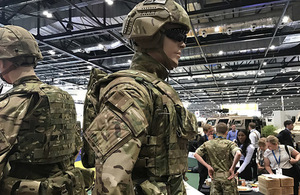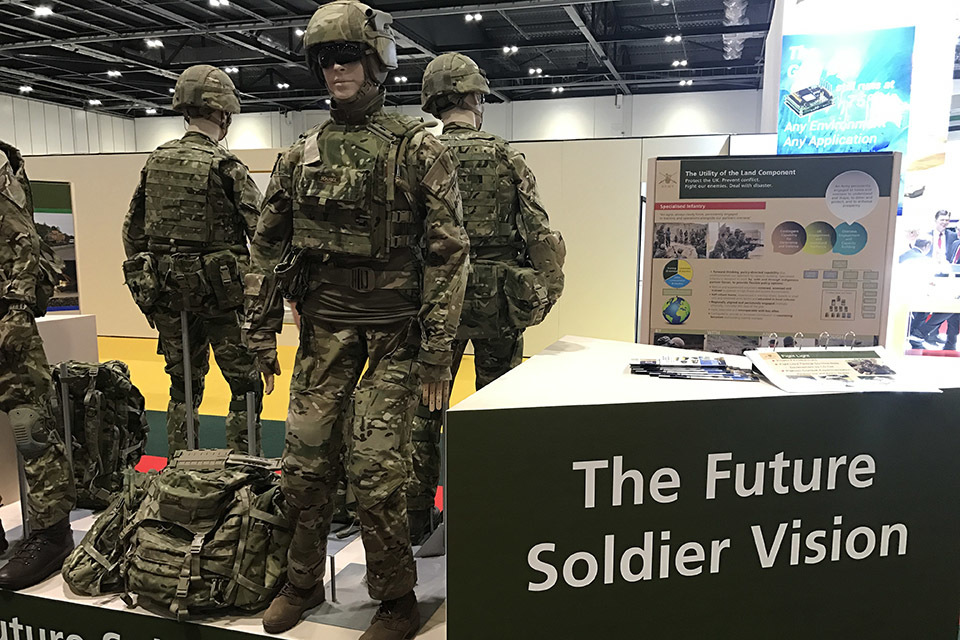MOD and Royal College of Art collaborate on cutting-edge new uniform
The Ministry of Defence and the Royal College of Art have collaborated on a future concept for Army combat uniform on show at this week’s Defence and Security Equipment International (DSEI) 2017 event.

MOD and Royal College of Art Collaborate on cutting-edge new uniform. Crown Copyright.
The Future Soldier Vision (FSV) is part of the MOD’s plan to give British soldiers’ high-quality, cutting-edge equipment.
The Royal College of Art’s (RCA) researchers and designers worked on the clothing to ensure prototypes were fitted to the body, easy to run in and comfortable to wear. The RCA supplied a number of sets of prototype combat clothing which were assessed at the Specialist Weapons School, Warminster, to examine future uniform concepts.
Minister for Defence Procurement Harriett Baldwin said:
From new materials to high-tech helmets, innovation is all about giving our personnel the kit they need by working with world famous partners like the Royal College of Art. You might not expect the MOD to work with an art and design university, but it is this kind of non-traditional partnership which will keep our Armed Forces equipped with cutting edge technology.
So far, kit being designed for FSV includes advanced combat clothing, with new materials like four-way stretch ‘phase-change material’ and silent hook-and-loop pockets. The enhanced body armour will be stronger, as well as having a new high-tech helmet with state-of-the- art, built-in communication systems.
FSV aims to give industry an example of an integrated soldier system that balances military need with cutting-edge technology. This includes technology that delivers distributed power and data, scalable and integrated protection, augmented surveillance and target acquisition, and a range of functional fabrics incorporated into the clothing.
Head of Programme for Textiles and Reader in Smart Textiles at the RCA Anne Toomey said:
The RCA was pleased to have this opportunity to demonstrate how our innovative design approaches can enhance value and impact across sectors through optimising existing materials performance and fabrication.
As the RCA grows its research activities to embrace new materials and fabrication technologies, we will be able to further extend this reach upstream. We plan to become the world’s first STEAM institution, operating a design-led approach to future innovation with materials through the development of our new Materials Science Research Centre.

MOD and Royal College of Art Collaborate on cutting-edge new uniform. Crown Copyright.
Defence Science & Technology Laboratory has worked with a number of small and non-traditional suppliers, such as the RCA, to develop options for improved soldier system components.